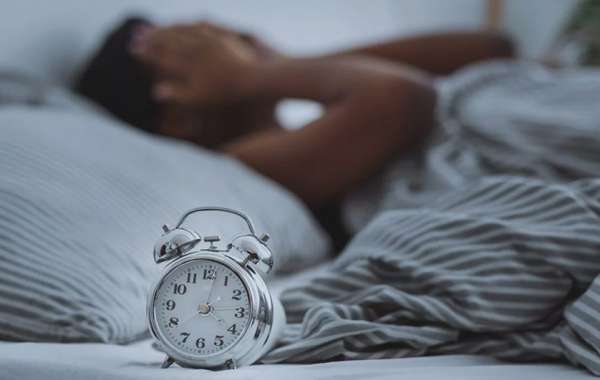In today's digital age, technology is deeply integrated into our daily lives. From smartphones to laptops, screens surround us, often even in our bedrooms. While these devices provide countless benefits, they also pose significant risks to our sleep quality. This article explores how technology impacts sleep, the science behind it, and ways to mitigate its effects.
The Sleep Crisis
Sleep is essential for our causes of insomnia and mental well-being, yet many people struggle to get enough restful sleep. According to the Centers for Disease Control and Prevention (CDC), about one in three adults do not get enough sleep regularly. Factors contributing to this sleep crisis include stress, lifestyle choices, and, increasingly, technology use.
The Science of Sleep
Understanding how sleep works is crucial to grasping the effects of technology on our rest. Sleep consists of several stages, including REM (rapid eye movement) and non-REM sleep. Each stage plays a vital role in cognitive function, memory consolidation, and overall health. Disruptions in sleep can lead to a host of issues, including impaired judgment, reduced performance, and even long-term health problems.
The Role of Blue Light
One of the most significant ways technology affects sleep is through blue light exposure. Devices like smartphones, tablets, and computers emit blue light, which can interfere with the production of melatonin, the hormone responsible for regulating sleep-wake cycles. When melatonin levels are disrupted, it becomes harder to fall asleep and stay asleep.
The Impact of Blue Light
Research indicates that exposure to blue light, particularly in the evening, can delay sleep onset and reduce overall sleep duration. A study published in the journal Proceedings of the National Academy of Sciences found that participants who used electronic devices before bedtime experienced poorer sleep quality compared to those who read a printed book.
Psychological Effects of Technology
Beyond the physical effects of blue light, technology also has psychological implications that can hinder sleep. Social media notifications, emails, and messages can create a sense of urgency and anxiety, making it challenging to unwind at the end of the day. The constant stimulation from these devices can lead to overthinking and stress, further preventing restful sleep.
The Fear of Missing Out (FOMO)
The phenomenon known as FOMO is exacerbated by technology. Many people feel compelled to stay connected and up-to-date, leading them to scroll through social media feeds late into the night. This behavior can create a cycle of anxiety and restlessness, making it increasingly difficult to achieve the restful sleep we need.
Sleep Disruptions from Notifications
Another significant factor impacting sleep is the barrage of notifications from our devices. Texts, calls, and app alerts can easily interrupt our sleep or make it challenging to fall asleep in the first place. Even if a person is asleep, notifications can lead to fragmented sleep, reducing the overall quality of rest.
Strategies to Reduce Notifications
To mitigate these disruptions, consider implementing a “Do Not Disturb” mode on devices during nighttime hours. This simple step can help create a more conducive sleep environment, allowing for uninterrupted rest.
The Compounding Effects of Stress and Screen Time
In addition to blue light and notifications, the cumulative effects of stress and screen time contribute to sleep disturbances. High levels of screen time, especially in the hours leading up to bedtime, can increase feelings of anxiety and stress. Engaging with stressful content or news can keep the mind racing, making it challenging to transition into sleep.
Mindfulness and Digital Detox
Practicing mindfulness or engaging in a digital detox before bedtime can help alleviate some of this stress. Taking time to unwind without screens, whether through reading, meditating, or gentle stretching, can signal to the body that it’s time to sleep.
Creating a Tech-Friendly Sleep Environment
To foster better sleep, consider creating a tech-friendly sleep environment. This might involve setting up specific boundaries for technology use, especially in the bedroom. Here are a few strategies to consider:
1. Designate a Tech-Free Zone
Make your bedroom a tech-free zone. Leave devices in another room, or at least ensure they are turned off during sleep hours. This can help create a more peaceful and restorative environment.
2. Use Blue Light Filters
Many devices come with blue light filtering settings. Use these features in the evening to reduce exposure to harmful light. There are also apps and screen protectors available that can help minimize blue light emission.
3. Establish a Bedtime Routine
Create a consistent bedtime routine that promotes relaxation. This could include reading, listening to calming music, or practicing breathing exercises. The goal is to signal to your body that it’s time to wind down.
4. Limit Screen Time Before Bed
Aim to limit screen time at least one hour before bed. Instead relief from insomnia , engage in activities that don’t involve screens, allowing your mind and body to relax.
The Future of Technology and Sleep
As technology continues to evolve, the relationship between technology and sleep will likely become more complex. Wearable devices that track sleep patterns and provide insights may help individuals understand their sleep habits better. However, it’s essential to remain aware of the potential downsides of these technologies, especially if they lead to increased screen time or stress.
Conclusion
While technology offers incredible advantages in our daily lives, it’s essential to recognize its potential impact on sleep. From blue light exposure to psychological stressors, our devices can keep us awake and disrupt our natural sleep cycles. By implementing strategies to reduce technology use before bed and creating a peaceful sleep environment, we can take back control over our sleep quality. Prioritizing sleep is crucial for overall health and well-being, and managing our relationship with technology is a key part of achieving that goal.




